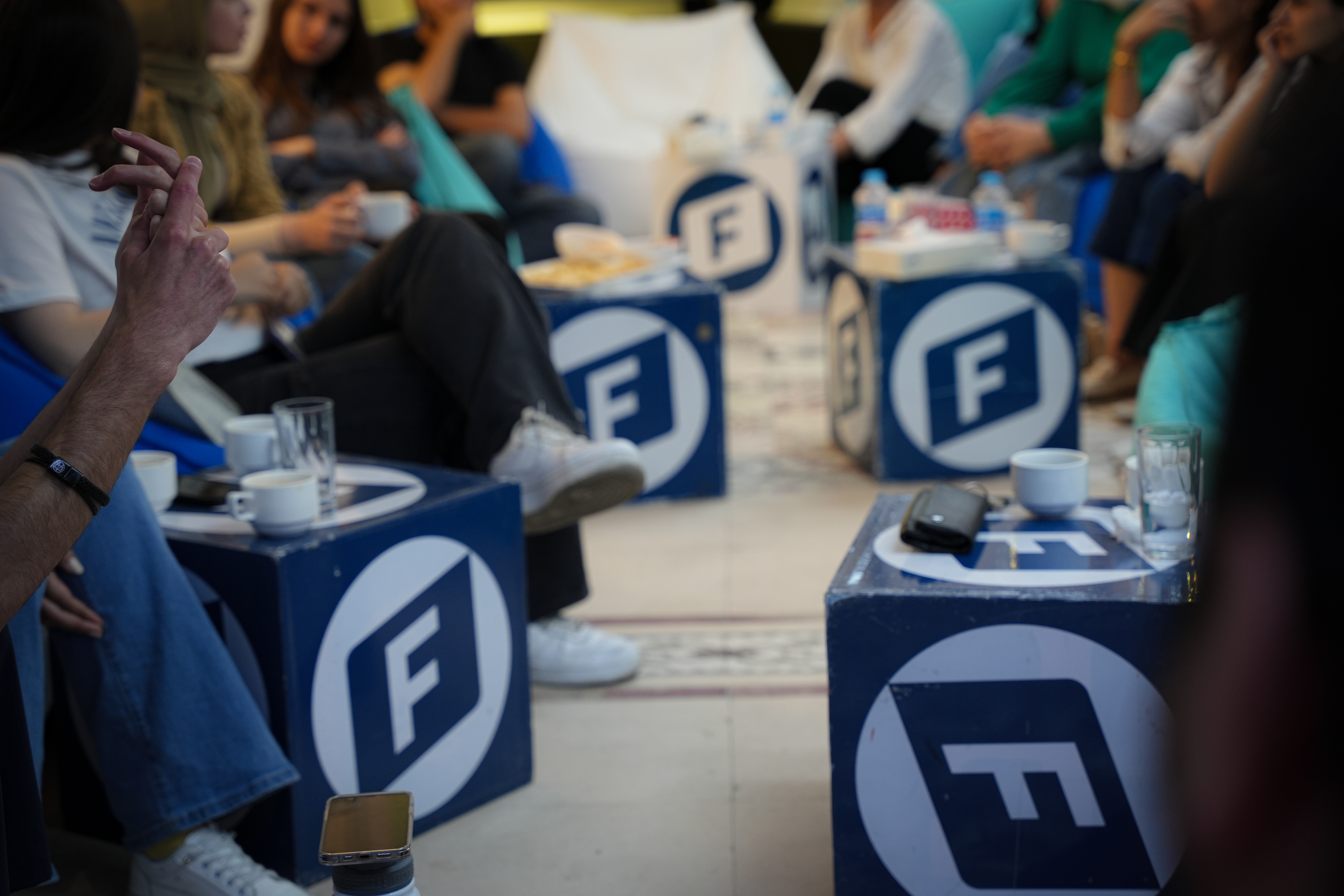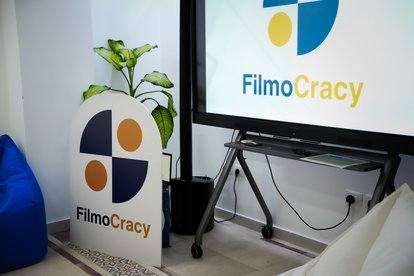The Power of Film: A Catalyst for Social Change
Key Insights from FilmoCracy’s Latest Sessions

Key Insights from FilmoCracy’s Latest Sessions
In a recent FilmoCracy series organized by the Friedrich Naumann Foundation (FNF) and the Free Youth Foundation (FYF), students came together to explore pressing societal themes through film. With screenings of Margin Call, Black Honey, Purl, The Present, The Blind Side, and The Day After Tomorrow, the series offered participants a unique platform to connect, reflect, and envision positive change for Jordan.
October 18: Margin Call – Ethics and Accountability in Finance
Opening the series, Margin Call delved into the high-stakes ethical dilemmas of a financial firm on the brink of collapse. This intense drama sparked reflections on transparency and responsibility. As one participant noted, "The film made me realize the far-reaching consequences of unethical behaviour in the financial industry." Breakout groups discussed the role of ethics in finance and the ripple effects of economic crises, suggesting initiatives like financial literacy programs and promoting transparent practices to prevent similar crises.
October 19: Black Honey – Exploring Bureaucracy and National Identity
Black Honey tells the story of Masri, whose encounters with corruption and bureaucratic hurdles reveal the complexities of national identity. The film resonated deeply with participants, who explored how such obstacles can erode a sense of belonging. "We need to address the root causes of corruption and bureaucracy to build a stronger and more just society," one participant remarked. Breakout groups proposed fostering civic engagement and community programs that strengthen cultural connections and promote a shared national identity, even in the face of systemic challenges.

October 24: Purl and The Present – Inclusivity and Empathy in Society
The screenings of Purl and The Present addressed essential themes of inclusivity and empathy. In Purl, a pink yarn ball navigating a male-dominated workplace prompted discussions on gender diversity in professional spaces. Meanwhile, The Present, about a boy caring for a disabled puppy, encouraged reflections on disability acceptance in Jordan. Participants brainstormed practical solutions, such as workplace mentorship and increased accessibility, envisioning a more inclusive society.
October 25: The Blind Side – The Power of Community Support
The Blind Side highlighted the transformative role of family and community in overcoming social obstacles. Participants connected Michael Oher’s journey with the challenges faced by many students, especially in underserved areas. "We need to create more opportunities for young people from disadvantaged backgrounds," one participant emphasized. Discussions highlighted the need for empathetic support and equitable access to resources. Breakout groups suggested partnerships with NGOs and community initiatives to help young people in rural regions thrive.
October 26: The Day After Tomorrow – Facing Climate Change Together
In the final session, The Day After Tomorrow brought the urgency of climate change to the forefront, drawing attention to Jordan’s particular vulnerabilities, such as water scarcity. Participants discussed both individual and governmental responsibilities in addressing environmental issues. "We need to adopt sustainable practices and invest in renewable energy sources," one participant suggested. Breakout groups proposed solutions, including awareness campaigns and incentives for sustainable practices, underscoring the importance of collaborative action in safeguarding Jordan’s future.

Each FilmoCracy session provided students with the chance to critically examine significant societal issues and share solutions inspired by the films. Through discussions on ethics, national identity, inclusivity, social support, and environmental responsibility, participants were encouraged to envision themselves as active contributors to a more just, inclusive, and sustainable Jordan.
